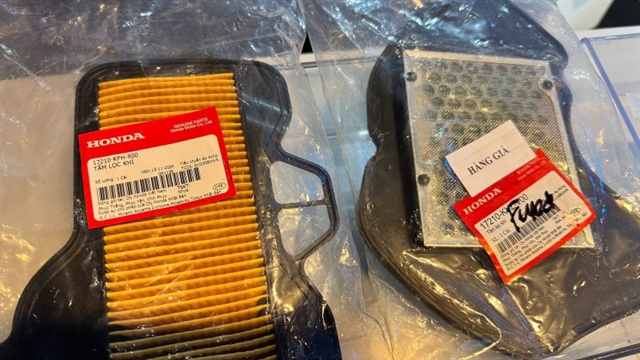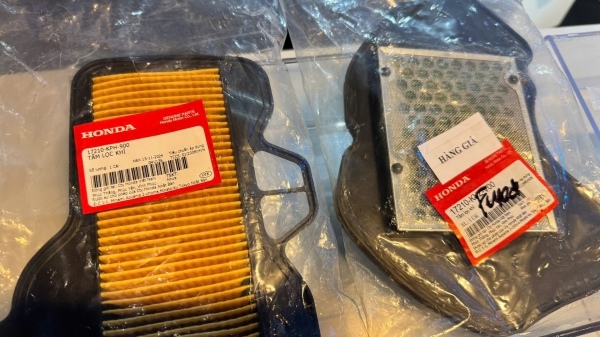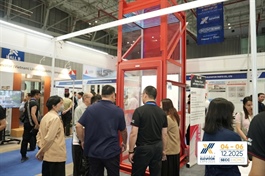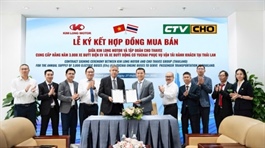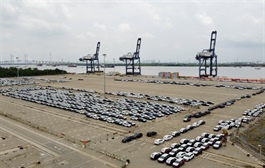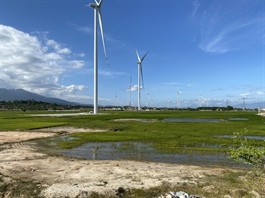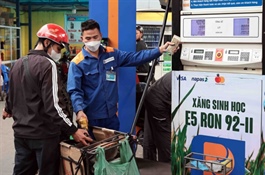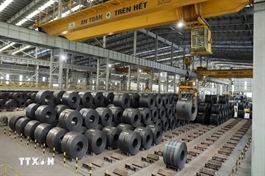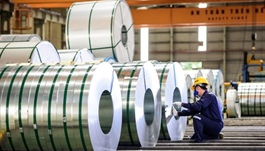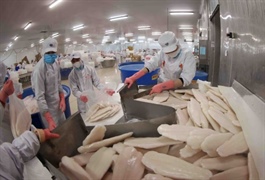Counterfeit motorcycle helmets and parts fuel public safety crisis
Counterfeit motorcycle helmets and parts fuel public safety crisis
The widespread use of counterfeit motorcycle helmets and spare parts is emerging as a grave threat to public safety in Vietnam, raising alarms among government authorities, manufacturers, and consumer rights groups.
|
A recent quality survey by the National Traffic Safety Committee revealed that 26 per cent of a sample of over 500 helmets in circulation were nothing more than plastic caps, thinly disguised as protective gear. These substandard helmets lack adequate cushioning and fail to meet even the most basic safety standards. Alarmingly, many are fraudulently labelled with fake quality stamps or illegally copy the design and branding of legitimate manufacturers. Priced as low as a few tens of thousands of VND, these helmets are sold openly on the side of the road, in small shops, or online marketplaces.
Despite being aware that such products offer no real protection, many consumers still purchase them as a temporary solution to avoid fines from traffic police. This mindset, combined with the misleading appearance of these helmets, makes enforcement efforts extremely difficult. Vendors and users often deny wrongdoing, citing ignorance or claiming the items are merely decorative protective gear.
But while fake helmets are a visible risk, counterfeit spare parts present an even more insidious danger. Components like brake pads, tyres, sprockets, and spark plugs – if counterfeit – can lead to catastrophic failures. The increasing sophistication of counterfeiters, who replicate packaging, security labels, and even trademarks of reputable brands, makes it difficult for consumers and enforcement agencies alike to detect the fakes. Some counterfeit parts are even mixed with genuine products, further complicating quality control and posing serious risks such as tyre blowouts or engine fires.
This growing problem has become a significant concern for both regulatory agencies and industry players. Nguyen Tien Dat, Deputy Director of Ho Chi Minh City’s Market Surveillance Agency, said, "The fight against counterfeiting must be continuous. Offenders are increasingly adopting sophisticated tactics, such as dispersing production across remote areas and splitting operations into different stages to evade detection."
Nguyen Viet Hong, vice chairman of the Ho Chi Minh City Consumer Rights Protection Association, warned that fake goods have become so rampant that authorities cannot keep up. "Even anti-counterfeit stamps are being forged. Consumers must be cautious when buying products from unreliable sources," he said.
Enforcement efforts have intensified. Ho Chi Minh City Police dismantled a major operation to counterfeit lubricant in June, initiating criminal proceedings against several suspects. At the same time, collaborative campaigns between businesses and law enforcement are being scaled up to improve monitoring and public awareness.
|
The Vietnam Association of Motorcycle Manufacturers (VAMM) has emerged as a key force in tackling the issue. Acting as a bridge between producers and consumers, VAMM is working closely with public agencies to promote the use of certified helmets and protect the legitimacy of genuine products. In cooperation with the National Traffic Safety Committee and other stakeholders, VAMM supported the 'National Compliance Helmet Campaign' in Hanoi, which led to a 95 per cent increase in the number of people wearing standard helmets compared to the same period last year.
In tandem with awareness initiatives, the association has strengthened its legal and enforcement contributions. Last year alone, VAMM was involved in 342 enforcement actions, resulting in the seizure of over 17,000 counterfeit parts. In the first half of 2025, another 177 cases involving more than 2,000 fake components were identified and addressed. A landmark seven-year legal battle over the industrial design infringement of a motorcycle model ended in a victory for a VAMM member company, highlighting the association’s determination to uphold intellectual property rights.
Training initiatives to help local market surveillance teams distinguish real from fake products have also proven effective. Held across Hanoi in Thai Nguyen, Binh Dinh, Dak Nong, and Phu Yen, these workshops – organised in collaboration with VAMM – have improved the field capabilities of enforcement officers. Key members of the association, such as Honda Vietnam, continue to invest in the distribution of genuine, traceable, high-quality products.
According to Dai Kha Quynh, a VAMM representative, the sophistication of fake products is now so advanced that even professionals struggle to tell them apart. "Some counterfeits now carry fake certification stamps and unauthorised brand markings that closely mimic the originals. This poses major challenges for both authorities and consumers," she said. "Only through collective and proactive efforts can we eliminate counterfeit goods from our daily lives."
While government enforcement remains critical, curbing the counterfeit problem requires societal engagement. Consumers are encouraged to purchase only from authorised dealers and request official invoices or quality control certificates for motorcycles and parts. Suspected violations should be reported to market surveillance agencies, economic police, or hotlines dedicated to counterfeit reporting. All submissions are treated confidentially and dealt with in accordance with legal procedures.
As Vietnam strives to modernise its transportation infrastructure and improve road safety, ensuring the integrity of helmets and vehicle parts must be a national priority. Fake products may come cheap, but the human and economic costs they incur are far too high.
- 17:56 30/06/2025


